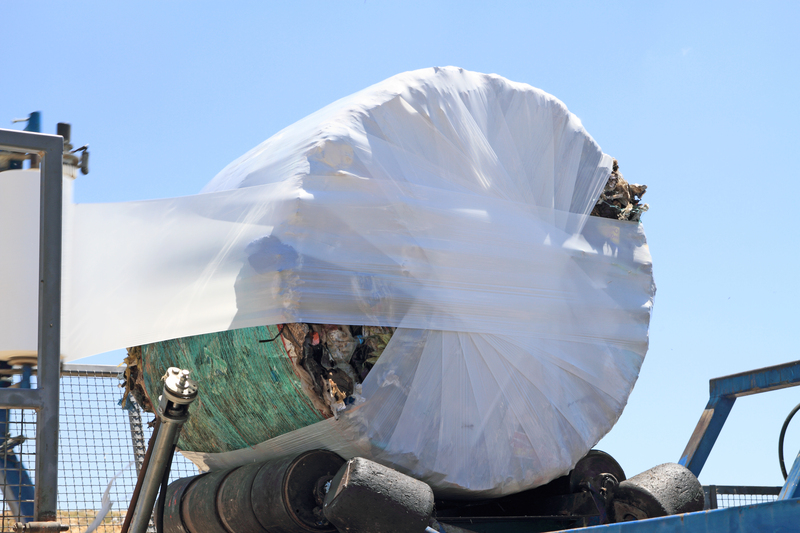How to Handle Bulky Waste Items and Save Cash: A Comprehensive Guide
Dealing with bulky waste items can be a daunting and expensive task if you're not armed with the right strategies. From old furniture to massive appliances and construction debris, getting rid of large items isn't always as simple as dragging your regular trash can to the curb. Whether you're downsizing, cleaning out your garage, or moving, understanding how to manage bulky waste effectively can save you significant money while benefiting the environment.
In this in-depth article, you'll discover cost-effective methods, community resources, and eco-friendly tips to handle your bulky waste. Explore various bulky waste disposal options, learn how to cut costs, and find ways to give your unwanted items a second life, all while keeping your wallet and the planet happy.

What Is Bulky Waste?
Bulky waste refers to large items that cannot fit in a standard garbage bin or bag. These include, but are not limited to:
- Old sofas and armchairs
- Mattresses and box springs
- Large appliances (fridges, washers, ovens, etc.)
- Carpets and rugs
- Garden furniture and equipment
- Renovation or construction debris
- Large toys, bikes, and even trampolines
Local regulations and collection services for large item disposal vary, so it's important to check with your city or waste management provider to prevent fines and maximize your savings.
Why Is Bulky Waste Disposal a Challenge?
Handling bulky rubbish often involves logistical hurdles and hidden costs:
- Transportation: Most municipal services do not pick up oversized items as part of regular waste collection.
- Cost: Commercial removal or dump fees can be expensive, often charged by weight or piece.
- Environmental Impact: Improper disposal can lead to landfill overflow and environmental hazards.
Smart Ways to Save Money on Bulky Waste Disposal
1. Utilize Free Municipal Pickup and Drop-Off Days
Many localities offer free bulky waste collection events several times a year. These are perfect opportunities to dispose of your unwanted items without incurring extra costs. Here's how to make the most of them:
- Check your city's calendar for scheduled bulky item pickups or free drop-off days.
- Understand which items are accepted and if any preparation is needed (e.g., mattress bagging, appliance coolant removal).
- Plan ahead to gather and prepare all your large items in time for the event.
Tip: These events are often scheduled in the spring and fall, coinciding with seasonal cleaning!
2. Take Advantage of Special Collection Services
If you miss municipal bulk waste days, many cities offer special large item collection for a fee much lower than hiring private haulers. Tips for using municipal special pick-up:
- Contact your waste management authority to schedule a pick-up.
- Group items together -- many services allow multiple items for a single modest fee.
- Follow all rules (placement, item limits, etc.) to avoid additional charges.
3. Donate, Sell, or Rehome Bulky Items
One person's trash could be another's treasure! Donating or selling gently used items is often quicker, kinder to the planet, and more affordable than landfill disposal.
- Charities & Nonprofits: Organizations like Goodwill, Habitat for Humanity, and The Salvation Army accept many large items. Some provide free pickup services.
- Online Marketplaces: Platforms such as Facebook Marketplace, Craigslist, and OfferUp are ideal for selling or giving away furniture, appliances, and more.
- Community Freecycling Groups: Local "Buy Nothing" or freecycle groups let you rehome items easily within your neighborhood.
Pro tip: Clearly describe your items and include measurements and photos to attract interested takers quickly.
4. Responsible Recycling
Many bulky waste items -- especially appliances and electronics -- can be recycled instead of dumped. This reduces environmental impact and sometimes allows you to avoid disposal fees.
- Locate your nearest recycling facility or contact your local department of sanitation for guidance.
- Some retailers, like Best Buy or Home Depot, offer appliance and electronics recycling services, occasionally for free if you're purchasing a replacement.
- Metal scrap yards may even pay you for large metal items like refrigerators, bed frames, or old bikes.
5. Rent a Truck or Trailer -- and Share Costs
If you have several oversized items (or are working as a group, like neighbors or friends), consider renting a truck or trailer for a single dump run split among several households. Here's how to maximize your savings:
- Coordinate with others to fill the truck and divide the expense.
- Compare local rental rates and landfill entry fees in advance.
- Take advantage of city dump "residential free days" if offered.
6. Check for Manufacturer Take-Back Programs
Many manufacturers and retailers provide take-back programs for items like mattresses, appliances, and electronics. These programs often include pick-up or drop-off options and ensure responsible disposal or recycling.
- Ask about old appliance removal when purchasing new electronics or white goods.
- Retailers like IKEA, Lowe's, and Mattress Firm frequently accept returns of used products when you buy new ones.
Eco-Friendly Options for Handling Bulky Waste
Handling large waste items isn't just about saving cash -- it's also about protecting our environment. Here are some eco-friendly ways to manage bulk trash:
Repurpose and Upcycle
Before tossing, consider upcycling your bulky items:
- Old furniture can be repainted, reupholstered, or converted for new uses (e.g., a dresser into a kitchen island).
- Pallets, door frames, and wood pieces are perfect for DIY garden projects.
- Consider local art collectives or makerspaces, which might accept or even buy materials for creative reuse.
Deconstruct and Recycle Components
If disposal is unavoidable, take apart the item where possible and recycle the individual materials. For example:
- Remove metal frames from furniture and take to a metal recycler.
- Separate electronic circuit boards, plastics, and glass for specialized recycling facilities.
- Compost clean, untreated wood when possible.
Common Mistakes to Avoid When Disposing Bulky Waste
- Illegal dumping: Dumping items on the curb outside of scheduled pickups or in unauthorized locations risks hefty fines and damages the community.
- Ignoring local rules: Not following city guidelines on preparation or accepted items can lead to refused collection or extra costs.
- Overlooking free opportunities: Missing out on council-sponsored collection days or donations by not planning ahead.
- Paying for unnecessary services: Be wary of commercial junk haulers that overcharge for services that your city or a charity might do for free.
How to Prepare Bulky Items for Disposal or Reuse
Proper preparation can prevent injuries, avoid fines, and make your items attractive for donation or resale:
- Clean items thoroughly, removing dirt, pet hair, or spills.
- Disassemble large items (beds, sofas) to manageable parts where possible -- this helps with transport and sometimes is required by collection services.
- Secure or tape moving parts (doors, drawers) to prevent accidents in transit.
- For appliances, remove hazardous fluids (coolants, oils) and check for local regulations on safe disposal.
The Benefits of Smart Bulky Waste Disposal
By embracing the strategies in this article, you'll:
- Save money by taking advantage of free or reduced-fee disposal methods.
- Help the environment by recycling, upcycling, and keeping usable items out of landfills.
- Support your community by donating to those in need.
- Reduce stress and clutter, improving your living space.

Frequently Asked Questions: Handling and Saving on Bulky Trash
What's the cheapest way to dispose of bulky waste?
The most affordable options are utilizing your municipality's free pickup/drop-off, donating or selling usable items, and recycling through local centers.
Can I leave big items on the curb?
Only during designated bulk item collection periods. Leaving items out of schedule may result in fines.
Are there restrictions on what can be picked up?
Yes. Most cities restrict hazardous materials, automotive parts, and construction debris. Check local guidelines for specifics.
What should I do if my item is still usable?
Try to donate, sell, or give it away," rather than pay for disposal -- someone may want it!
How do I recycle old appliances?
Contact your local recycling facility or retailer take-back program for safe, often free, drop-off or pickup options.
Conclusion: Handle Bulky Waste Responsibly and Save Money
Dealing with bulky waste items doesn't have to be expensive, time-consuming, or hard on the environment. By using a blend of municipal resources, creative reuse, responsible recycling, and teamwork, you can save cash while minimizing your ecological footprint. Before you load up your car or call a pricey junk removal service, review your local options, plan ahead, and make your bulky waste work for you -- or for someone else!
Take the time to handle bulky waste thoughtfully, and you'll protect your community, your wallet, and the planet.
